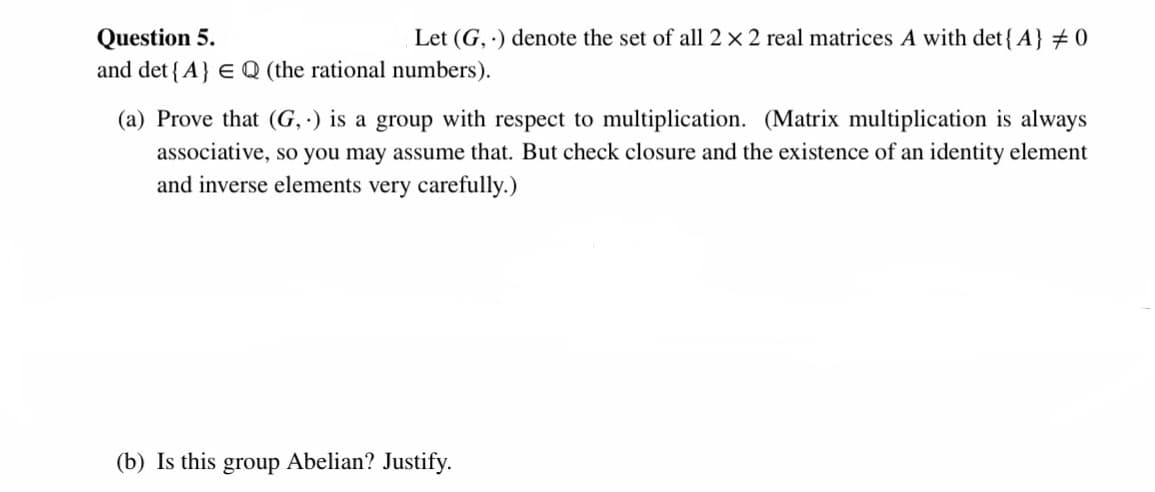Let (G, ) denote the set of all 2 x 2 real matrices A with det{A} 0 Question 5. and det { A} E Q (the rational numbers). (a) Prove that (G,·) is a group with respect to multiplication. (Matrix multiplication is always associative, so you may assume that. But check closure and the existence of an identity element and inverse elements very carefully.) (b) Is this group Abelian? Justify.
Let (G, ) denote the set of all 2 x 2 real matrices A with det{A} 0 Question 5. and det { A} E Q (the rational numbers). (a) Prove that (G,·) is a group with respect to multiplication. (Matrix multiplication is always associative, so you may assume that. But check closure and the existence of an identity element and inverse elements very carefully.) (b) Is this group Abelian? Justify.
Elements Of Modern Algebra
8th Edition
ISBN:9781285463230
Author:Gilbert, Linda, Jimmie
Publisher:Gilbert, Linda, Jimmie
Chapter3: Groups
Section3.2: Properties Of Group Elements
Problem 29E: 29. State and prove Theorem for an additive group.
Theorem : Generalized Associative Law
Let be a...
Related questions
Question

Transcribed Image Text:Question 5.
and det { A} E Q (the rational numbers).
Let (G, ) denote the set of all 2 x 2 real matrices A with det{A} 0
(a) Prove that (G, ·) is a group with respect to multiplication. (Matrix multiplication is always
associative, so you may assume that. But check closure and the existence of an identity element
and inverse elements very carefully.)
(b) Is this group Abelian? Justify.
Expert Solution
This question has been solved!
Explore an expertly crafted, step-by-step solution for a thorough understanding of key concepts.
This is a popular solution!
Trending now
This is a popular solution!
Step by step
Solved in 2 steps with 2 images

Recommended textbooks for you

Elements Of Modern Algebra
Algebra
ISBN:
9781285463230
Author:
Gilbert, Linda, Jimmie
Publisher:
Cengage Learning,

Elements Of Modern Algebra
Algebra
ISBN:
9781285463230
Author:
Gilbert, Linda, Jimmie
Publisher:
Cengage Learning,